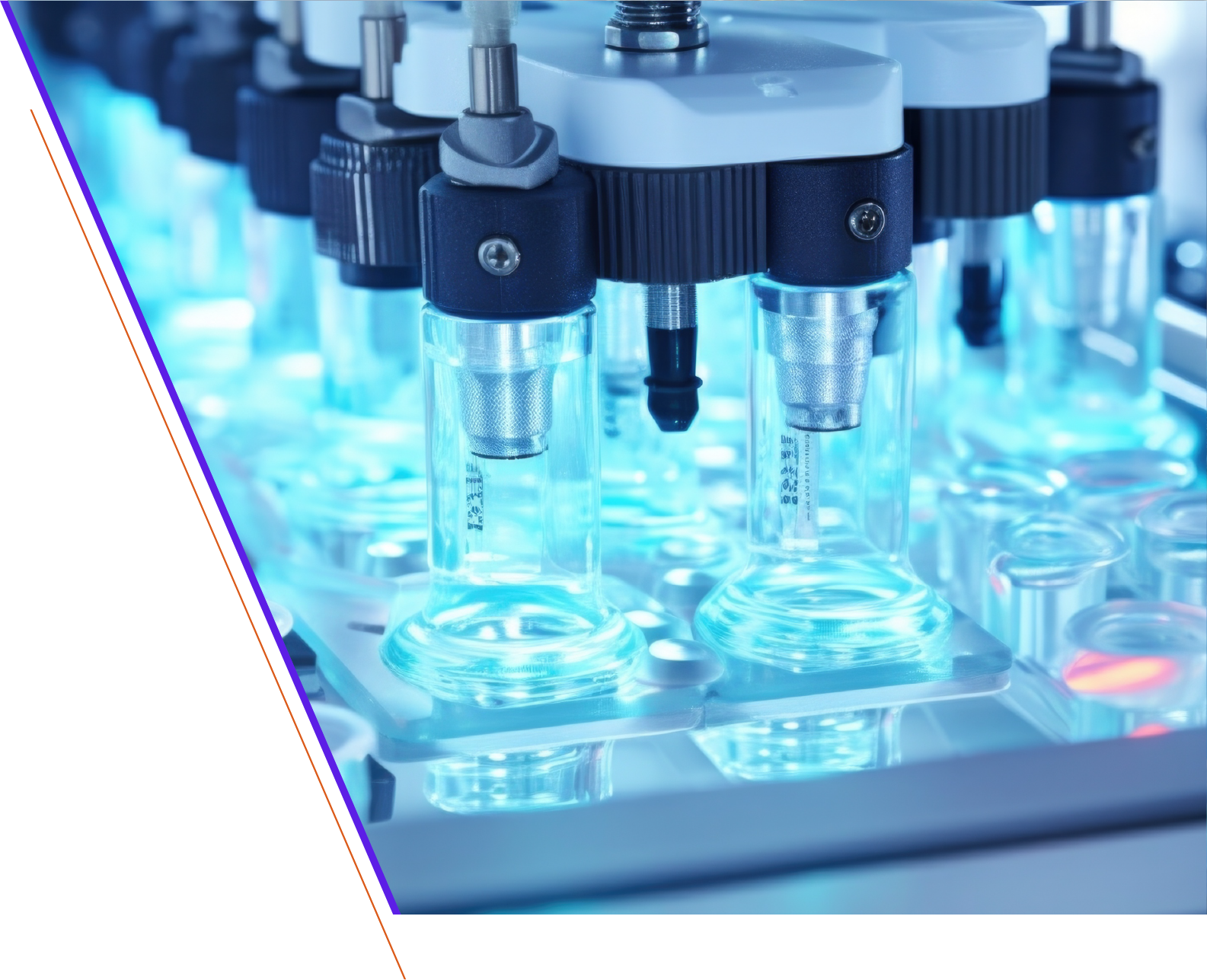
Case Study
How Ascential Helped a Precision Diagnostics Company Commercialize a Breakthrough in Rapid Phenotypic Antimicrobial Susceptibility Testing
Overview
A Boston-based precision diagnostics start-up developed a disruptive concept for a diagnostic system with the aim of reducing the time it takes to perform phenotypic antimicrobial susceptibility testing (AST) without compromising result accuracy. These tests are used when a patient has a severe infectious disease to help the clinician select the most effective antimicrobial therapy for the patient’s specific case.
Challenge
Previously, even best in class AST took between 2-5 days to complete—critical days during which a patient’s condition could worsen or prove fatal. Additionally, incorrect antibiotic treatment or initial high potency antibiotics taken while awaiting AST results can promote the reproduction of anti-microbial bacteria. While these tests are particularly useful in emergency situations, the broader goal for the new diagnostic system is to change the standard of care for all bacterial infections by reducing AST processing time and cost.
While the diagnostics company had designed a workflow and chemical assay prototype that was viable, they needed a partner with deep experience in diagnostic instrumentation and solving complex engineering challenges to design and commercialize their product.
Solution
Following Ascential’s proven project pathway process, a cross-functional team of engineering and manufacturing experts in disciplines including precision microfluidics, thermal management, advanced robotics, and custom software turned the client’s prototype into a high-performing, commercially available product.
Tight spatial tolerances were necessary to enable the system to be installed in pre-existing spaces within hospitals and labs to avoid costly facility renovations or construction that may hinder its market acceptance. Ascential not only optimized the footprint of the system but also developed a compact, vertically stacked architecture in the analyzer, with the flexibility of inputting samples asynchronously on the top floor and an efficient, deterministic lower floor to run concurrent samples.
The team also needed to ensure the machine worked fast. The startup initially required processing speeds of 10 patient panels per hour, with a 60-panel capacity. Ascential’s design team systematically assessed every process parameter bottleneck for improvement. For example, the team was able to improve an 80 second dispense step down to 20 seconds. With this and many other optimizations, the throughput increased to nearly 17 patient panels per hour with a 96-panel capacity. This sped up the process by 70% and increased the number of patient tests by 50%.
Additionally, this highly orchestrated parallelization had to be compliant with environmental factors that preserved the integrity of the living samples. To execute the necessary thermal management, Ascential developed an instrument which calibrates 800 temperature measurements across 80 incubator slots to six-sigma distribution across a range of 34.5 degrees +/- 0.5 degrees.
Because Ascential conducts all phases of development in-house, our experts can optimize it based on feasibility, schedule, and cost. While custom development can address complex technical requirements, it adds cost and assembly time. Ascential developed semi-custom components adapted to meet (and exceed) technical requirements while reducing cost by 50%. The semi-custom gantry system enabled our team to deliver the first prototypes 35% faster than the initial plan (11 months instead of 17), while still meeting the stringent size and space requirements.
Traceability is key to ensure FDA compliance, and it is critical to be able to demonstrate that all processes and all materials in the instrument have been approved. All three instruments developed are class 2 IVD, following ISO 13485 and FDA Design Controls as part of the phase gate process. Leveraging deep experience with regulatory requirements, Ascential designed tracking and tracing throughout the manufacturing process to deliver quality, compliant products.
By partnering with Ascential, the diagnostics company was able to keep all aspects of the commercialization journey under one roof. This reduced risk, improved time to market, and reduced overall cost. Together, our experts collaborated with the client to design and manufacture a life-saving instrument that exceeded project goals. The resulting analyzer enables AST to be performed accurately in one, 8-hour shift, compared to the previous standard which took 2-5 days.
Ascential is proud to have helped enable our client to improve patient outcomes and set a new standard for speed and quality in phenotypic AST.
-
%
reduction in AST
processing time
from 2-5 days to
8 hours
%
increase in throughput,
driving capacity for patient tests 50% higher
Key Results
Ascential helped the client drastically reduce the typical AST process from 2-5 days to 8 hours, or an 83-93% improvement in processing time.
Ascential helped to obsolete the traditional 24 hour incubation by enabling the system to run an AST diagnostic test straight from positive blood culture. This incredible feat was granted the prestigious FDA Breakthrough Device Designation.
The Ascential team helped the client deliver speed and the most comprehensive bug / drug menus available. The initial PRD required a 60 panel capacity, but the final product delivered 96 panels, a 60% increase in capacity.
Ascential’s expertise allowed the client to achieve a 70% higher throughput, exceeding the project goal of processing 10 panels per hour and delivering an output of 16.9 panels per hour.







